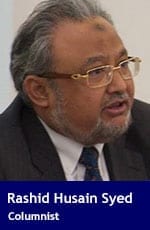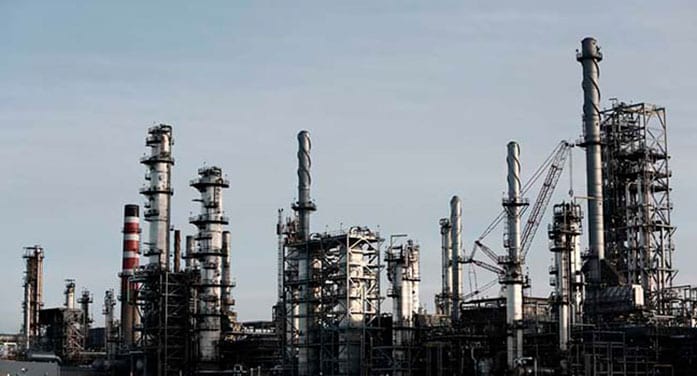 I am in Abu Dhabi and the glitter is visible – all around.
I am in Abu Dhabi and the glitter is visible – all around.
With the oil-based economies of the Gulf’s current high budgetary surpluses, the glitter will only shine brighter. New projects worth hundreds of billions of dollars are being showcased throughout the region, from Saudi Arabia to Qatar and from Abu Dhabi to Kuwait.
All this glitter is owed almost entirely to the oil resources of the Gulf Arab states. And the current price levels have only given a boost to the earnings of these Petro-states. The current high market prices would translate into $907 billion of revenues from oil exports by the Organization of Petroleum Exporting Countries this year (2022), says the U.S. Energy Information Agency (EIA). This is a hefty jump compared to $577 billion in revenues on average since 2000.
Saudi Arabia, the United Arab Emirates, Qatar, and Kuwait will collectively have a $409 billion current account surplus, reckons Capital Economics, or almost three times last year’s total. And despite all the sanctions, Moscow’s current account surplus, so far in 2022, has tripled, year-on-year.
 |
| Related Stories |
| Saudi Arabia still not ready to ditch Russia
|
| Saudis using oil market leverage to their advantage
|
| OPEC is in a defiant mood and the world is paying the price |
Meanwhile, Saudi Arabia, the world’s top crude exporter and the largest Arab economy, has achieved a rare budget surplus of over $20 billion in the second quarter of 2022, as oil revenues surged 90 per cent compared to just a year ago.
Riyadh has failed to balance its budget since 2014. Like other Gulf economies, it was forced to tighten its belt to meet its growing expenses. Balancing the budget was taking its toll. To compensate for the budgetary shortfalls, Saudi Arabia had to borrow from local and international money markets. Reserves of the Saudi sovereign wealth fund were also dwindling rapidly, raising concerns that Saudi Arabia may not be able to meet its future obligations.
To generate additional revenues, Riyadh introduced higher taxes and increased the prices of services, including water, gas, and utilities within the country, despite the possibility of political repercussions.
All this has changed.
In the second quarter of 2022, the Saudi finance ministry recently reported, Saudi Arabia earned more than it spent, with a surplus of 78 billion riyals ($20.8 billion). The surplus was primarily due to oil revenues rising to more than 250 billion riyals, compared to around 132 billion during the same period in 2021. This was a jump of 89 per cent. Also in the second quarter of 2022, Saudi oil giant Aramco announced a jump in its profits by 90 per cent, when compared to the same time last year, helping its half-year 2022 earnings reach nearly $88 billion, AP reported mid-August.
This is a real turnaround. The oil boom brought about by the Ukraine war has made energy-rich Middle Eastern countries extraordinarily wealthy once again, underlined Nadeem Ebrahim while reporting for CNN. The energy price spike triggered by the Ukraine war has lifted the Gulf states out of an almost decade-long economic slump that saw them cut spending and go into budget deficits as their economies shrank. Russia’s invasion of its neighbour shot the value of crude to an eight-year high, Ebrahim reported.
Yet, he cautioned, it may be the last such upswing of the oil markets.
Ballooning oil revenues, analysts warn, could also mean oil-rich Gulf Arab countries defer making tough economic decisions, mainly for political reasons.
The fact is current crude markets are strengthening, but future supply-demand fundamentals continue to stay weak. With no Ukraine war or embargo on Iranian and Venezuelan oil, the markets would look entirely different today.
Whether this is the last upswing in oil fortunes, as Ebrahim suggests, is difficult to say. One fact, though, remains certain; oil will continue to be used in considerable quantities in the years and decades ahead, yet will lose its strategic value.
Toronto-based Rashid Husain Syed is a respected energy and political analyst. The Middle East is his area of focus. As well as writing for major local and global newspapers, Rashid is also a regular speaker at major international conferences. He has provided his perspective on global energy issues to the Department of Energy in Washington and the International Energy Agency in Paris.
For interview requests, click here.
The opinions expressed by our columnists and contributors are theirs alone and do not inherently or expressly reflect the views of our publication.
© Troy Media
Troy Media is an editorial content provider to media outlets and its own hosted community news outlets across Canada.


